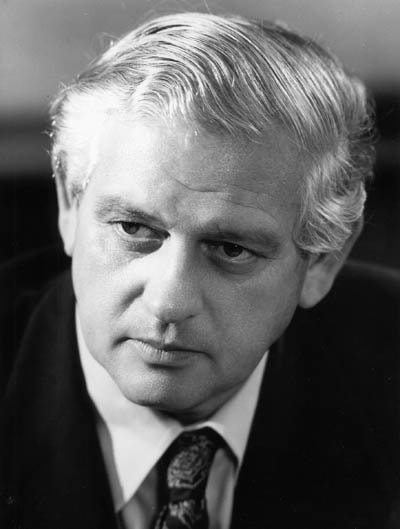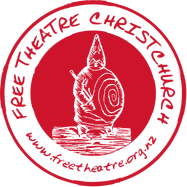|
Every Ubu Night is different but this one this week takes another unusual turn. We've commenced a project that considers the current state of New Zealand using Hamlet as a core text: Something is rotten in the state of New Zealand. But we don’t quite know what it is or what to do about it, or if we can do anything at all. We have lost our identity and lost control of our destiny. The only way left to act is as a puppet or a clown – like Hamlet. Someone once said “people don’t want much, just someone to love, somewhere to live, somewhere to work and something to hope for” – this now sounds like the voice of a ghost from a different place and a different time. But maybe this voice, the voice of Norman Kirk, will urge us to act again. For Hamlet, to be or not to be means to accept the world the way it is or to kill himself. We ask ourselves how not to be Hamlet. How to “act”? The project commenced as a personal response to the current political situation and originally I'd imagined it as a solo performance: A performance that plays between Hamlet and my own experiences. I am Hamlet, or wanting to play Hamlet, identifying with his questions over whether to act, how to act in relation to the murder of his father. My father once said to me that the loss of his business in 1987 after borrowing heavily on the advice of the then Labour government, killed him. It certainty had a profound effect on my family and how I came to view the world. This view was further affected by experiences such as the demise of the Fortex plant I worked at in the mid 90s and the brutal and unrelenting attack on my department at the University of Canterbury through the 2000s – both consequences of the social and economic reforms of 1984 that radically changed New Zealand. Running alongside these events, intertwining with them has been my experience in Free Theatre, propelled towards the possibility that “the play’s the thing wherein I’ll catch the conscious of the King”. Not a didactic theatre, but an idea of theatre as a liminal space wherein our political and social reality may be confronted and questioned, the first step towards change. Hamlet is not set apart from this reality; he forces himself to confront the truth that his own action, and inaction, may be the very source and affirmation of his uncle’s power. Or that he himself may just as easily be a Claudius, a Fortinbras or an Ubu. And so he is constantly confronted with his dilemma and attempt to escape – to be or not to be – fighting himself in perpetual crisis, constantly returning to his own certainty of his father’s murder, the causes for it, and therefore his only real option is to play the clown. We decided however, following Peter's suggestion, that a better way to undertake this exploration was to develop a bicultural view with two Hamlets exploring different perspectives of our time and place. Aaron Hapuku and I are using our distinct biographies to explore 'How not to be Hamlet', that is, to go beyond what seem like Hamlet's only choices to either accept the world as it is or commit suicide; rather we're exploring how to act. This is a difficult question but has taken on even greater urgency this year with Brexit and Trump. It feels like one of the most important acts in these "end times" is to take the time to think, to question and to consider new alternatives. If the last century was about theory in action (e.g. communism) with disastrous consequences, now is the time to think again, returning to what might be the best of the Enlightenment project and reconsidering ideas afresh in the current context. The problem is that when anyone questions capitalism and liberal democracy the classic response is, "Well, what do you want, communism? That didn't work out so well did it?". Francis Fukuyama's famous term 'the end of history' to describe what he saw as the ultimate victory of liberal democracy and capitalism over all other forms, is very much the ideological perspective of our times when alternatives cannot even be imagined despite the natural, political and economic environment crumbling around us. As the likes of Slavoj Zizek and Alain Badiou argue, now is precisely the time to be thinking of alternatives, to be provoking the dialogue that shatters the view that there are no alternatives. Thinking and generating dialogue are the most important acts - and here the theatre can play a vital role. It can provide a way to step back, a space to really look at what is happening, to question it with others. This is the action that is needed today. It may appear that one cannot act today, that all we can really do is just state things. But in a situation like today's, to state what is can be much stronger than calls to action, which are as a rule just so many excuses NOT to do anything. Let me quote Alain Badiou's provocative thesis: 'It is better to do nothing than to contribute to the invention of formal ways of rendering visible that which Empire already recognizes as existent'. Better to do nothing than to engage in localized acts whose ultimate function is to make the system run more smoothly (acts like providing space for the multitude of new subjectivities, etc.). The threat today is not passivity, but pseudo-activity, the urge to be 'active', to 'participate', to mask the Nothingness of what goes on. People intervene all the time, 'do something', while academics participate in meaningless 'debates', and so on, and the truly difficult thing is to step back, to withdraw from all this. Those in power often prefer even a 'critical' participation, an exchange of whatever kind, to silence - just in order to engage us in a 'dialogue', to make sure our ominous passivity is broken. As our current Prime Minister (Uncle Claudius?) decides to call it a day, it is a good time to be thinking about what is considered good governance. As outside observers such as the Guardian and even as some of his own supporters have noted, Key spent the time telling us he was "doing all sorts of stuff", which amounted to very little in making the country better and a lot in allowing commercial interests full reign to exploit our natural resources. While he played the clown, mincing up down the catwalk, peeing in the shower, holding pointless flag referendums and pulling ponytails, he successfully distracted 'middle New Zealand' from the damage that was being inflicted on our social and natural environment.
How should we act? When Hamlet is forced into action at the end he simply perpetuates a mindless circle of violence. Our aim, through theatre, is to explore how not to be Hamlet and to actually work towards meaningful change. Perhaps by starting with a remembrance of Kirk's simple aspiration for New Zealanders: “people don’t want much, just someone to love, somewhere to live, somewhere to work and something to hope for”. George
0 Comments
Leave a Reply. |
Free Theatre ChChFree Theatre Christchurch. Intermittent blogging. Thoughts. Enjoy. Archives
March 2021
Categories |
- HOME
- ABOUT
- UPCOMING
- EDUCATION
-
ARCHIVE
-
Productions 1979 - present
>
- Babylon Berlin
- Beggars Banquet
- Woyzeck
- The Tempest
- The Axe
- Endgame
- Digitising Performance
- Erewhon: Over the Range
- A Summer Night's Dream
- How Dare You
- A Winter's Tale
-
Ubu Nights
>
-
Past Ubu Nights
>
- Ma Ubu Night
- Ubu Through the Looking Glass
- Ubu in Wonderland Ubu Night
- Frankenstein Ubu Night
- Casablanca Ubu Night
- Faust Ubu Night
- Not Hamlet Ubu Night
- Punk Ubu Night
- The Art of the Deal Ubu Night
- Crossroads Ubu Night
- Ubu Shows Us the Way to Brecht's Whiskey Bar
- The Devil and the Blues Ubu Night
- Bowie Ubu Night
- Warhol Ubu Night
- Berlin Kabarette
- Beat Ubu Night
- Twin Peaks Ubu Night
- David Lynch Ubu Night
- Kafka Ubu Night
- Tango Ubu Night
- Ubu Ubu Night
- Lovecraft Ubu Night
-
Past Ubu Nights
>
- Ars Acustica
- Alice
- The Black Rider
- Frankenstein
- The Mauricio Kagel Project
- Te Puna Toi 2015: Footprints/Tapuwae
- Kafka's Amerika
- The Soldier's Tale
- Canterbury Tales
- I Sing the Body Electric
- Hereafter
- Passion, Pulse and Power
- The Earthquake in Chile
- Doctor Faustus
- The Marvellous Corricks >
- Distraction Camp
- Remake
- Ella and Susn
- Free Theatre - 25 years and counting...
- Faust Chroma
- Enigma Emmy Goering/Nico Sphinx of Ice
- Faust Feast
- Diana Down Under
- Philoctetes >
- Fantasia
- Christmas Shopping
- Grimm's Sleeping Beauty
- Achternbusch in the Antipodes
- Caucasian Chalk Circle
- Samson Airline
- Kabarett Kabul
- Footprints/Tapuwae
- Last Days of Mankind
- Medea
- Bakkhai / Diotek
- Krapp's Last Tape
- Murderer Hope of Women / The Philosopher's Stone
- Comrade Savage
- Love on a Bicycle
- Resolution Island
- Songs for the Judges
- Crusoe
- Oedipus Rex/Oedipus at Colonus
- States of Shock
- Empire Builders
- Yes
- Power
- Robinson Crusoe: Or I THat Was Born To Be My Own Destroyer
- Newsbites
- Dumped in Space
- MedeaMaterial
- Salome
- Electra
- Sphinx and Strawmen
- The Girl Who Sings Waterfalls
- Hamletmachine
- Oresteia
- A Respectable Wedding
- Bitter Tears of Petra von Kant
- Double Act and Postponeless
- Cloudkiwiland
- Preversions
- G.O.P. Helpomatic
- The Mortal Pleasure of Wander Lust
- Red Cross & Takeaway
- Lulu Earth Spirit
- The Meeting
- Action / Tongues
- Cowboy Mouth
- The Rise and Fall of the City of Mahagonny
- A Letter from L
- Dinosaurs and All the Rubbish / The Hunting of the Snark
- The Ride Across Lake Constance
- Electra
- In Three Minds
- The Rapist Over Suzannah
- 1984: The Future Is Now
- Leonce and Lena
- Kabernette
- The Joffongract
- My Foot, My Tutor
- King Lear
- King Ubu
- Jazz Cellar Dada / Heavy Metal Cabaret
- Kabarett
- Black Cat Cabaret
- The Gas Heart/Ox on the Roof/The Mirror Wardrobe One Fine Evening
- Round Dance
- Woyzeck
- Make-up Ground down / Texts for Decomposition
- Court Case: Arts Centre vs Free Theatre
- Image Gallery 1979 - present
- TV3 Clips
- Selected Reviews
-
Productions 1979 - present
>
- Te Puna Toi
- SUPPORT
- BLOG



 RSS Feed
RSS Feed

